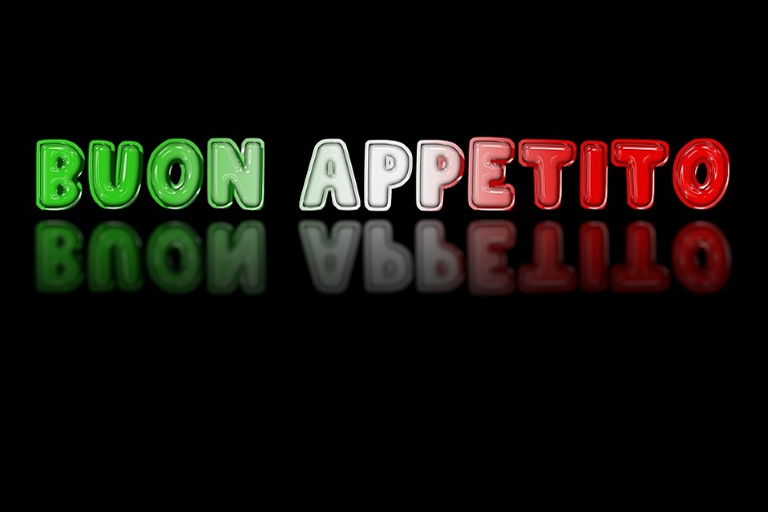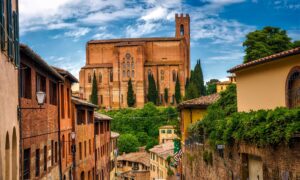English italian words
Latin influence in the English language
Latin and later the Italian language have had a strong influence on the English language in the past. This is usually an advantage when learning Italian as a great deal of English vocabulary has the same Latin origin and can be easily recognised by an English speaker. English Italian words commonly used are for example: dilemma, fiasco, finale, terracotta, tombola, vendetta, etc.
The musical world, in particular, has been influenced by the Italian composers and most of the musical terms and music notation are in Italian. For instance: crescendo, allegro, opera, teatro, piano, scenario, ballerina, prima donna, and so on. If you wish to read more about why Italian is the language of music please read this blog.
Nevertheless, nowadays, it is the Italian language that is absorbing more words from English, for example from the technology and business world. And Italians are embracing the English words with open arms. Unfortunately, sometimes, allowing far too many unnecessarily.
The Italian influence
However, the English language is still importing some Italian words. The new vocabulary entering the English dictionary is often related – as you would expect – to food and drinks: so everybody is very familiar with the classics Italian English words: pasta, lasagne, cappuccino and vino. Yet, there are a few words that, even if you are not learning Italian, you need to be aware of as they are used in Italian in a different way and they might give rise to misunderstanding. Here are a few examples that should help you with incorporating these Italian and English words correctly into your personal dictionary:
Some words you think you know…
1. Latte
In Italian this word means milk so when ordering a coffee, if you wish for a Latte it is better to order a ‘latte macchiato’, to avoid being served a glass of cold milk.
You might have learnt this term from a Starbucks’ menu, yet Starbucks’ coffees are not popular in Italy. In fact, the coffee culture in Italy is quite different. For instance, most Italians drink espresso or caffè macchiato, which is an espresso with a dash of milk. Cappuccino is ordered in the morning for breakfast and never drank after meals. Frappuccino does not exist nor does a pumpkin spice. Italian coffee culture is key to understanding this society. Please keep an eye out for our next blog on this subject.
2. Panini
In Italian this is the plural noun of ‘panino’, which means bread roll, rather than grilled sandwich. In Italy you might want to ask for a ‘panino tostato’ to get that.
Bread has a special place in the Italian culture. Artisan independent bakeries are doing well just like their friend the patisserie. Similar to the French, Italians buy their bread daily and the bread basket is always present at the table in restaurants. Bakeries and patisseries in Italy look like elegant jewellers selling a great variety of different breads and pastries. Hence, entering into one is a pleasure for the eye as well as for the other senses.
3. Pepperoni
In Italian this word does not exist. ‘Peperone’ is a similar word; still, this is not a spicy sausage though, but a sweet pepper. Consequently, this is a false friend, in other words, a term that is spelt or pronounced similarly to one in your own language yet has a different meaning.
When ordering a pizza, order a ‘salame piccante’. You are already familiar with the word salame, though pronounced with an ‘e ‘ at the end, as in the e of elephant. Whereas piccante means spicy. It is also worth mentioning that pepe means pepper as in the spice.
4. Bolognese
This means ‘from Bologna’ conversely, the meat and tomato sauce you are looking for is actually called ‘ragù`. The ragù is in fact from the region of Bologna as is the king of all pasta dishes: lasagne. Lasagne is made as well with this sauce. Interestingly enough, the term ragù is originally French and the dish of pasta accompanied by ragù dates back to the 18th century.
5. Prosciutto
Prosciutto means ham and it is both the cooked variety (prosciutto cotto) and also the cured one (prosciutto crudo). The most famous prosciutto crudo is prosciutto di Parma, which is a cured ham hung for a minimum of 6 to 36 months. Parma ham has been produced since Roman times and it only has three ingredients: pork, salt and time.
7. Al fresco
Literally, this means ‘in a cool place’ despite this, it does not mean outdoors. If – when in Italy at a restaurant – you wish for an outside table, it is better ask for ‘un tavolo fuori’ or ‘all’aperto’. So you might say: “vorrei un tavolo fuori”. Funnily enough, ‘finire al fresco’ means to end up in jail.
8. Confetti
This is another false friend. In Italian confetti are sugared almonds and are distributed to family and friends at special occasions such as weddings, baptisms and graduations. The pieces of colored paper are called ‘coriandoli’. Italian use coriandoli during Carnival.
Parla Italiano is a school of Italian language specialising in teaching adults. If you wish to learn a language, we believe it is important to understand the culture and our classes always include cultural elements. We have classes at all levels including complete beginners, intermediate and advanced students. A new complete beginner’s class starts soon. Please check our schedule of courses at all levels here.







